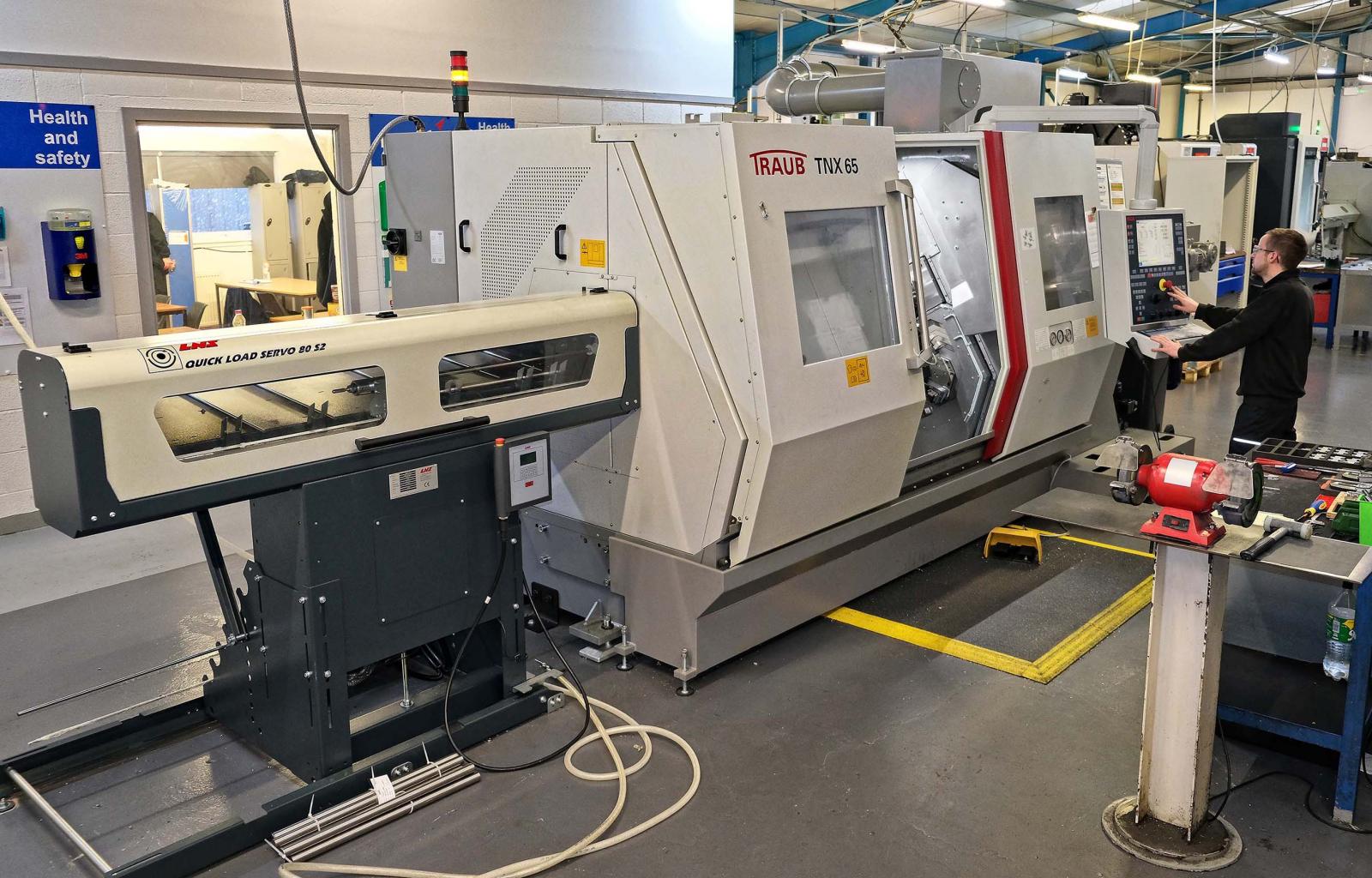
Turn-milling investments at Martin Aerospace have helped it to meet a sharp increase in customer demand by dramatically reducing cycle times on tough aerospace materials
The Lanark-based supplier to the global aerospace sector installed a German-built Traub TNL32-9P sliding-head lathe two years ago and followed this with a Traub TNX65 fixed head lathe last year.
Supplied by Kingsbury, sole agent for the UK, Ireland and Middle East, the first machine started producing aerospace components from tough alloys 24/5 from the beginning of 2018. It has been so successful at fulfilling an ongoing contract for producing aero engine components from titanium, Inconel and stainless steel that the business had no hesitation in returning to the same source for a fixed-head lathe. Installed in July 2019, the Traub TNX65 produces parts from Inconel and Nimonic for the same customer.
Both lathes have reduced multiple operations to one-hit production, making it much easier to hold the required tolerances, which are generally to within ± 0.01 mm although one pin diameter has to be turned on the sliding-head lathe to ± 4 microns. At the same time, process cycles have been shortened dramatically, by over 90% in one case on the TNL32-9P and typically by 70% on the TNX65, added to which handling time and work-in-progress have been eliminated. Such significant savings are partly a result of the ability on both machines to have three tools in cut simultaneously, each having a different feed rate for optimum metal removal.
Neil Lawson, operations director at Martin Aerospace explained, "In 2017 a customer increased its annual requirement for five different parts, with quantities rising from a few hundred to 6,500 per part number. We were making them on a variety of twin-spindle turn-mill centres of sliding- and fixed-head design.
"Such a sharp increase meant investing in a new turning centre to meet the demand and a sliding-head lathe was appropriate in view of the shaft-type proportions."
Cutting strategies proposed by Kingsbury, balancing the cycle times on the main and counter spindles, allowed major cycle time reductions.
One two-operation cycle time of 6.5 minutes was reduced to a 1.2-minute single operation. In another case, a 55-minute three-operation process was cut to one 15-minute cycle.
All five parts are produced from bar to a process capability of Cpk 1.67, underpinned by 100% inspection, before they go for grinding and thread rolling.
Another component produced by Martin Aerospace that is required in increasing quantities is a nozzle for a borescope. Machined from an Inconel billet 63.5 mm in diameter, 70 mm long and weighing 2.7 kg, it needed 147 minutes for the completion of seven operations on horizontal and vertical machining centres and lathes, during which the weight was reduced to 0.7 kg. The cycle time was cut to 65 minutes in a single operation on a twin-spindle turn-mill centre already on the shop floor in Lanark, on which it was possible to have two tools in cut simultaneously, deployed by the two tool carriers.
To cope with higher volumes the TNX65 fixed head lathe was purchases and this triple turret machine with live tooling was able to make the part in one hit in just 25 minutes.